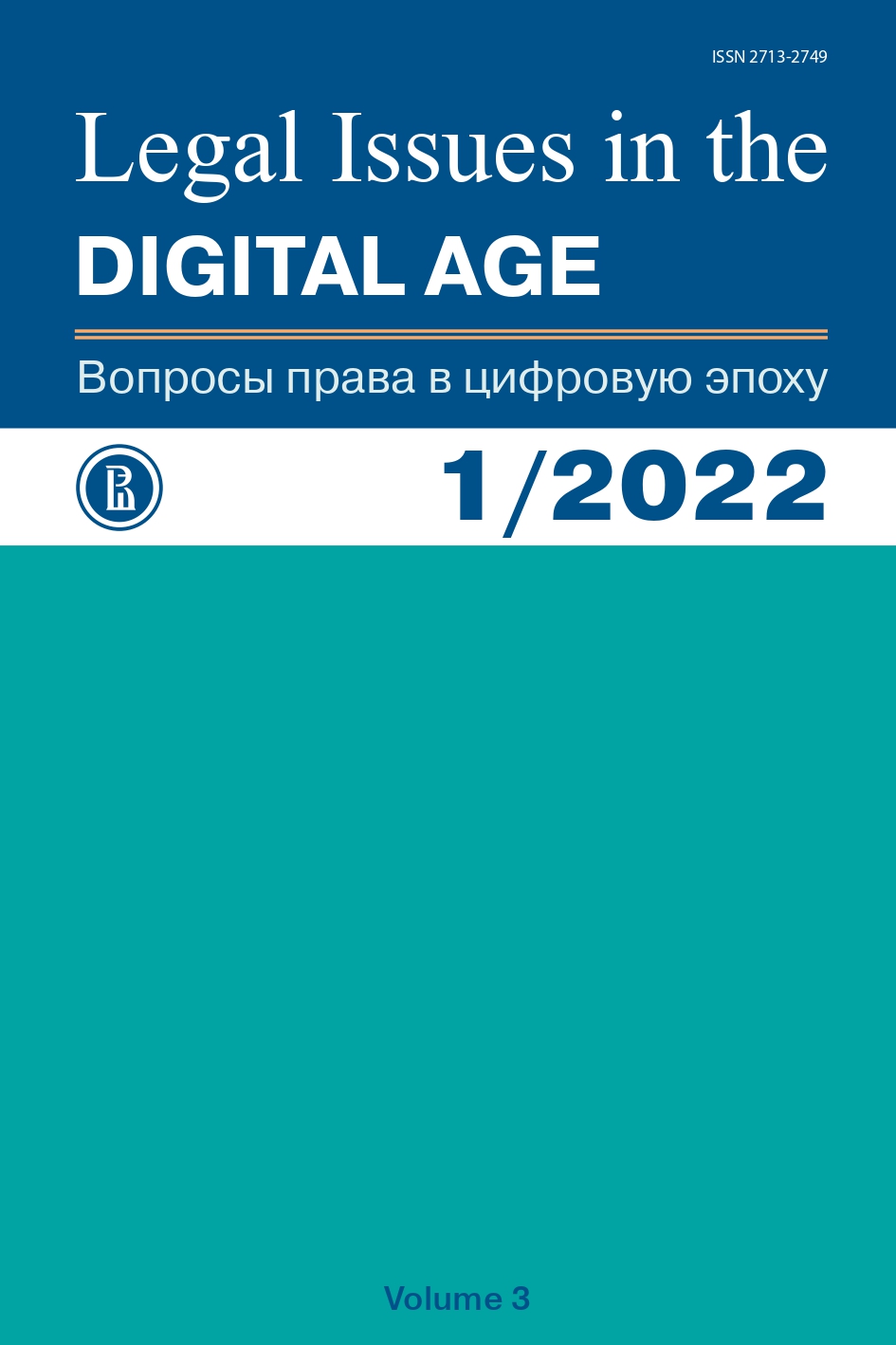The Impact of Digitalization on Ways of Thinking about the Right of Property: Are We All “Owners” or “Users”?
Abstract
The paper analyzes how emerging technologies, and especially the Internet, can affect the national and European legal system, transforming the fundamental rights and freedoms involved, challenging the traditional categories and qualifications of property, and, in more general terms, stimulating, if necessary, a re-thinking of the man-thing relationship in the light of parameters and references other than those that have been classically used. More specifically, the idea of creating a regulatory framework that accompanies the evolution to which the concept of property is exposed in a digital age pushes us to carry out an analysis of the framework referable to copyright, especially as far as it concerns the F/OSS software with non-copyleft effect, to understand more clearly if the present conceptual apparatus has problematic features or if the issues that the internet poses can be managed in the already existing normative-conceptual framework.
References
Alpa G. (2014) Che so e il diritti private. Roma — Bari: University Press, p. 14 (in Italian)
Alpa G. (2017) Manuale di diritto private. Padova: no publisher, p. 238 (in Italian)
Bauman Z. (2012) Liquid of Modernity. Cambridge: University Press, p. 60.
Bernstein G. (2007) Toward a General Theory of Law and Technology. Minnesota Journal of Law, Science and Technology, no. 8, p. 441.
Cafaggio F. (2011) New Foundation of Transnational Private Regula-tion. Journal of Law and Society, vol. 38, pp. 20–21. DOI: https://doi.org/10.1111/j.1467-6478.2011.00533.x
Cockfield A., Pridmore J. (2007) A Synthetic Theory of Law and Tech-nology. Minnesota Journal of Law, Science and Technology, no. 8, p. 475.
Copps M. (2005) Disruptive Technology ... Disruptive Regulation. Michigan State University Law Review, p. 309.
Irti N. (1998) Ordine giuridico del mercato. Roma — Bari: University Press, p.112 (in Italian)
Janich J. (2002) GestigesEigentum. Tubingen: Mohr Siebeck, p 193 (in German)
Katual N. (2014) Disruptive Technologies and the Law. Georgetown Law Journal, no. 102, p. 1685.
Lessig L. (1999) The Law of the Horse. What Cyberlaw Might Teach. The Harvard Law Review, vol. 11, pp. 501 — 502. DOI: https://doi.org/10.2307/1342331
Mokyr J. (1990) The Lever of Riches. Technological Creativity and Economic Progress. Oxford: University Press, p.152.
Moses L. (2007) The Recurring Dilemmas. The Laws Race to Keep up with Technological Change. University of Illinois Journal of Law, Technology and Policy, no. 1, p. 239.
Moses L. (2007) Why Have Theory of Law and Technological Change. Minnesota Journal of Law, Science and Technology, no. 8, p. 589.
Podszdam R., Kreifels S. (2016) Digital Platform and Comparative Law. Journal of European Consumer and Market Law, no. 5, p. 33.
Reich C. (1964) The New Property. The Yale University Journal, vol. 73, p. 733. DOI: https://doi.org/10.2307/794645
Rodota S. (2013) Il terribile diritto. Bologna: University Press, p. 86 (in Italian)
Samuelson P. (1990) The Digital Media and Changing Face of the Intellectual Property Law. Rutgers Comparative and Technology Law Journal, no. 16, p. 324.
Teubner G. (2011) Constitutionalizing Polycontemporality. Society and Legal Studies, vol. 20, p. 210. DOI: https://doi.org/10.1177/0964663911400245
Tranter K. (2005) Nomology, Ontology and Phenomenology of Law and Technology. Minnesota Journal of Law, Science and Technology, no. 8, p. 449.
Authors who publish with this journal agree to the Licensing, Copyright, Open Access and Repository Policy.










